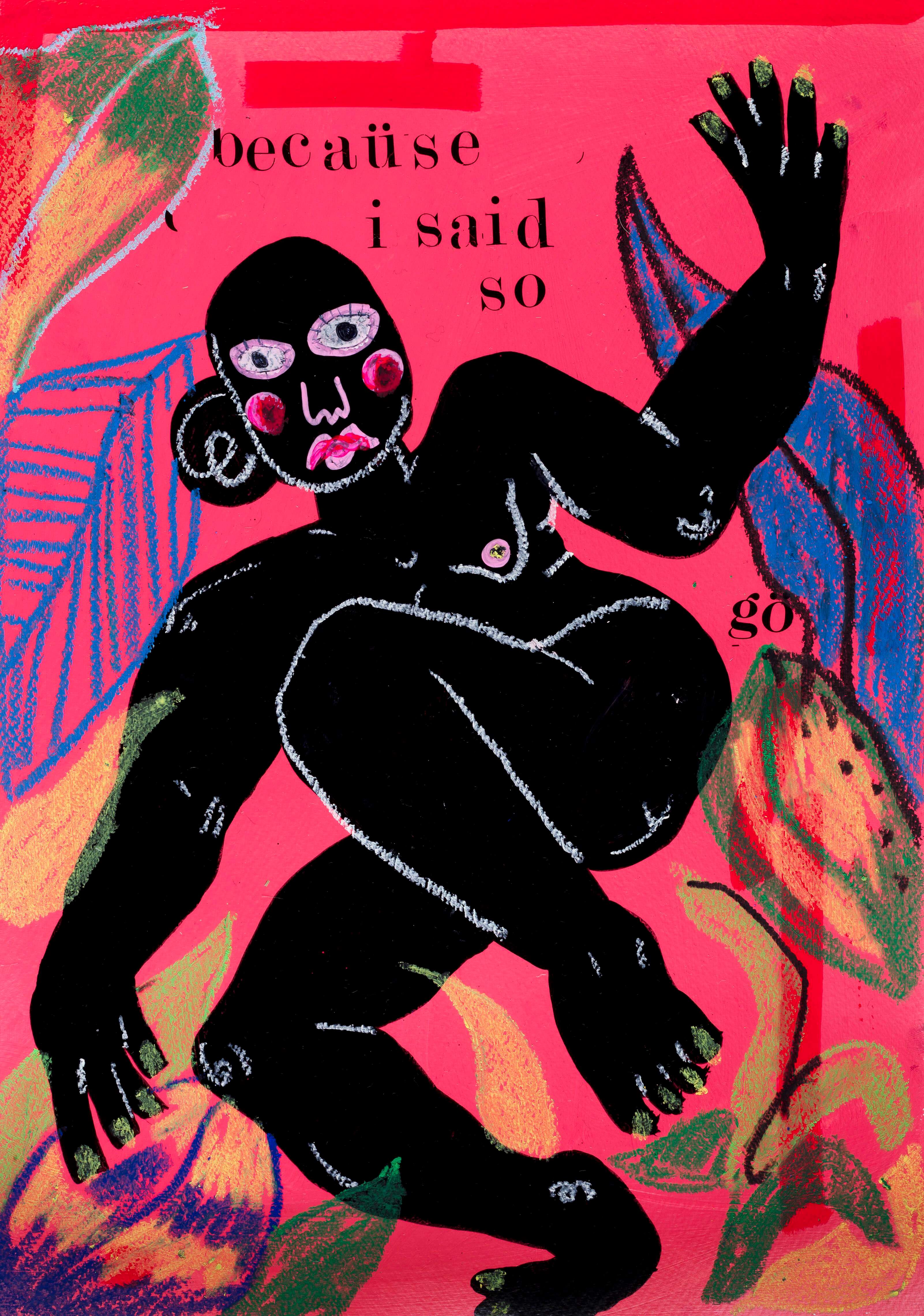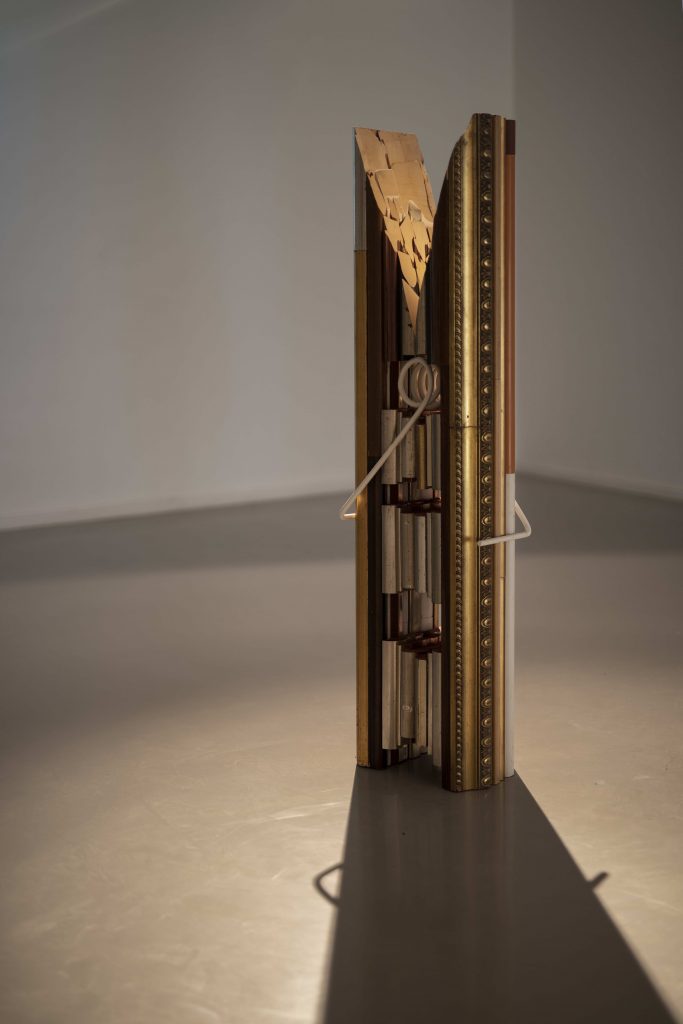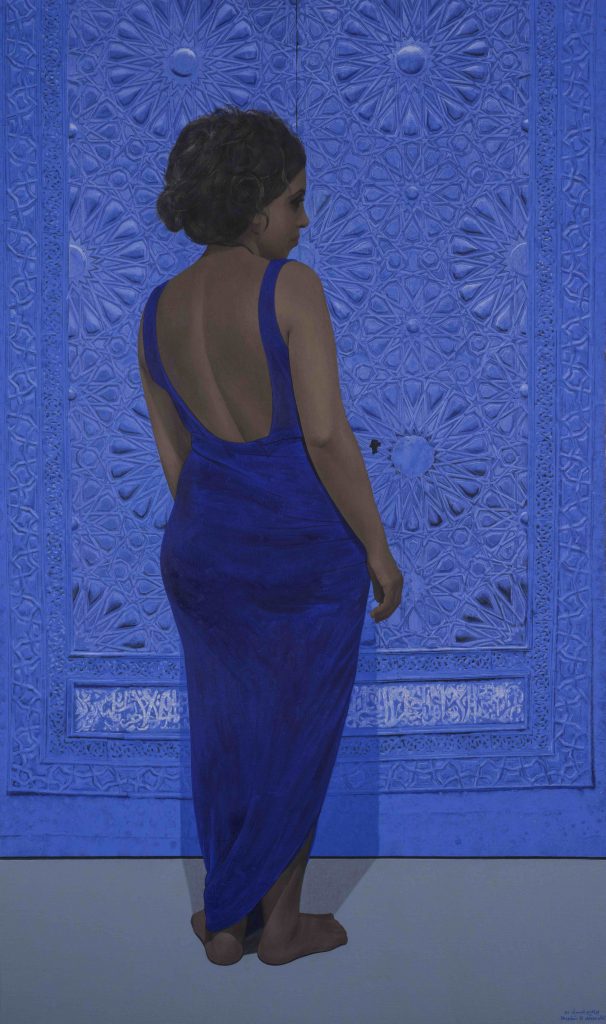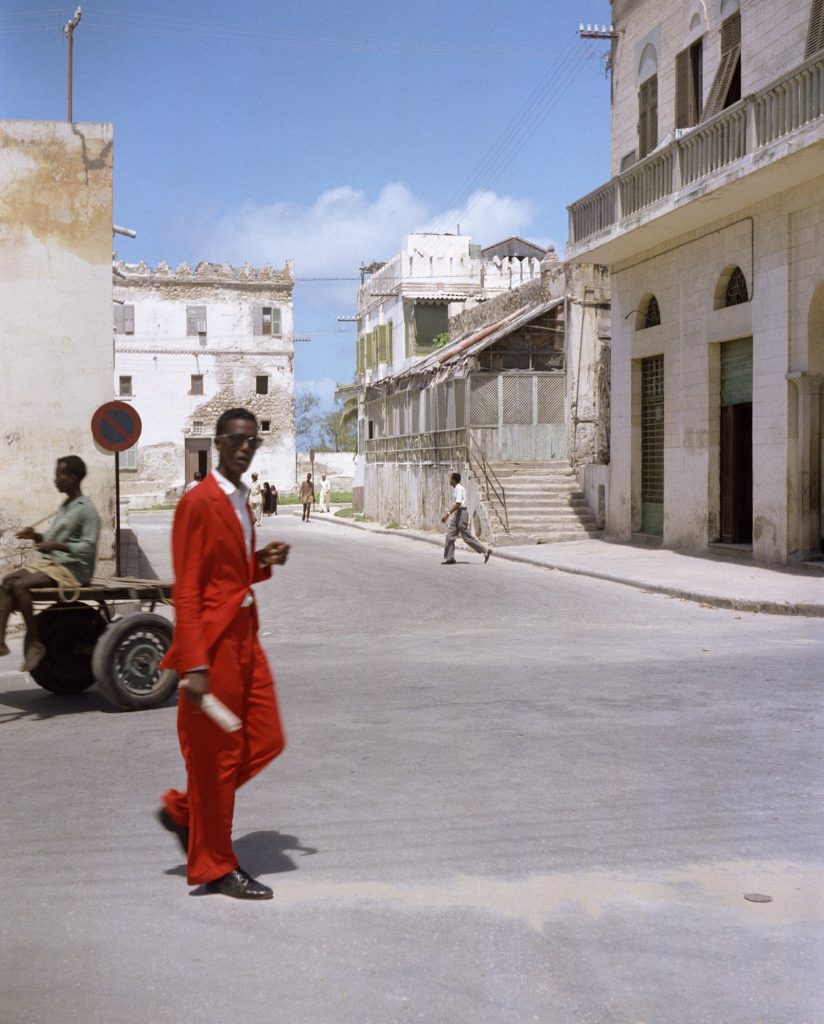Boemo Diale – The Colours of Racial Ambiguity
‘Permaculture’ is artist Boemo Diale’s colourful exploration of race, gender, spirituality and identity as a racially ambiguous black woman, writes Sandiso Ngubane
“I just can’t believe the things people say to me/ Am I black or white?/ Am I straight or gay?” These words by the late musician Prince from his 1981 song ‘Controversy’ resonate in my head as I listen to Boemo Diale speak. The young artist’s first show ‘Permaculture’ opened at Kalashnikovv Gallery in Braamfontein, Johannesburg, at the beginning of May.
Although she describes herself as a black Motswana woman the artist is not shying away from her racial ambiguity, making it the subject of her small gallery debut. Nine mixed media works on paper featuring cartoon-like figures on a background with foliage serve as a personal reflection, creating a regenerative consciousness in the artist’s own engagement with the nuances of gender, race, spirituality and identity.
Permaculture is described as the development of agricultural ecosystems intended to be sustainable and self-sufficient.
“When I hear the word ‘permaculture’ it makes me think of cultural aesthetics,” she says, adding that she has always existed in a liminal space, her identity juxtaposed between blackness on her mother’s side, and the racial ambiguity of her paternal family, which appeared white.

“The work is a kind of commentary on identity and working through cultural aesthetics as a black person. These yellow and black characters represent racial ambiguity and myself. It’s about growing up in Rustenburg and Mafikeng – towns in the North West province of South Africa – and being racially ambiguous in a black space and then later coming into a white space and being a black body. It’s about constantly navigating through these spaces. The foliage represents a jungle or forest. I’m this black woman navigating through the confusion and dysmorphia.”
Diale’s early childhood in Rustenberg was spent with her domestic worker grandmother, living in what was termed ‘servant’s quarters’. At school, other kids called her ‘lekgoa’ (white person) and teased her in Setswana saying things like ‘o tlhapa ka lebese’ (she bathes in milk). While she finds neither particularly offensive, it does of course create a sense of alienation in a child, and this is often carried well into adulthood for many people with an obvious multicultural heritage.
“I later on moved to a suburban home in Parkview, Johannesburg. I think I was far less conscious of my racial ambiguity there because I guess the privilege sort of shields you from that, but the juxtaposition of growing up with my grandmother in a maid’ quarters and then having a helper and their kid growing up in the back of our home – it was a bit confusing.”

Of course the deconstruction of racial ambiguity is nothing new in art but whereas the work of someone like Adrian Piper is often viewed as political or even confrontational, Boemo Diale’s engagement with her heritage is more the function of a personal reckoning with her own nuanced existence, devoid of any direct political statements. Her use of colour – bright pink, yellow, green, red – and embellishing her characters with tattoos is more about engaging with the aesthetic reality of racial ambiguity than it is about, say, confronting and addressing social prejudices.
“I just love bright colours and pretty things and I think that, if done right it doesn’t have to look kitsch,” she says. Pointing to one piece, she explains: “This has the text ‘if you go, you can’t come back’. I was thinking about having to choose a certain kind of expression for myself, which I realise is kind of silly. On this one I wrote ‘Because I said so’. I think that’s just about teen angst and not wanting to commit to a particular cultural box.”
The self-taught artist is currently studying film at the University of Witwatersrand and says while she took art classes in high school and thought about enrolling to an art school after matric, she questioned what her intentions with it would be. Film is an ‘easier’ medium for her. She is currently working on a larger narrative film project for which this show ‘Permaculture’ serves as a storyboard. – African Art Features Agency funded by the National Arts Council of South Africa.
Cover image : Permaculture 5 (2021). Boemo Diale’s gallery debut features mixed media works on archival paper
‘Permaculture’ runs at Kalashnikovv Gallery until May 31




